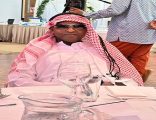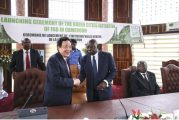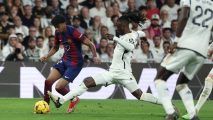Categories
Recent Posts
- Southern Cameroons refugees in Nigeria receive farm seedlings
- Douala: Investment Forum wraps up with honors for investment champions
- Understanding the Biya Francophone regime’s support for the Israeli genocide in Gaza
- US: Prosecution lays out ‘criminal conspiracy’ as Trump’s hush money trial opens
- FAO formally launches Green Cities Initiative in Cameroon
Archives
- April 2024
- March 2024
- February 2024
- January 2024
- December 2023
- November 2023
- October 2023
- September 2023
- August 2023
- July 2023
- June 2023
- May 2023
- April 2023
- March 2023
- February 2023
- January 2023
- December 2022
- November 2022
- October 2022
- September 2022
- August 2022
- July 2022
- June 2022
- May 2022
- April 2022
- March 2022
- February 2022
- January 2022
- December 2021
- November 2021
- October 2021
- September 2021
- August 2021
- July 2021
- June 2021
- May 2021
- April 2021
- March 2021
- February 2021
- January 2021
- December 2020
- November 2020
- October 2020
- September 2020
- August 2020
- July 2020
- June 2020
- May 2020
- April 2020
- March 2020
- February 2020
- January 2020
- December 2019
- November 2019
- October 2019
- September 2019
- August 2019
- July 2019
- June 2019
- May 2019
- April 2019
- March 2019
- February 2019
- January 2019
- December 2018
- November 2018
- October 2018
- September 2018
- August 2018
- July 2018
- June 2018
- May 2018
- April 2018
- March 2018
- February 2018
- January 2018
- December 2017
- November 2017
- October 2017
- September 2017
- August 2017
- July 2017
- June 2017
- May 2017
- April 2017
- March 2017
- February 2017
- January 2017
- December 2016
- November 2016
- October 2016
- September 2016
- August 2016
- July 2016
- June 2016
Featured
 Understanding the Biya Francophone regime’s support for the Israeli genocide in Gaza
Understanding the Biya Francophone regime’s support for the Israeli genocide in Gaza  Poverty under Biya: Cameroonians embrace Chinese language for brighter futures
Poverty under Biya: Cameroonians embrace Chinese language for brighter futures  Cameroon is broken: Who can fix it?
Cameroon is broken: Who can fix it?  Ethiopia: U.S Senator Cardin Statement on the Killing of Bate Urgessa
Ethiopia: U.S Senator Cardin Statement on the Killing of Bate Urgessa  Battle for the Unity Palace: ANNOUNCEMENT!
Battle for the Unity Palace: ANNOUNCEMENT!
Most Commented Posts
 4 Anglophone detainees killed in Yaounde
4 Anglophone detainees killed in Yaounde
19 comments Chantal Biya says she will return to Cameroon if General Ivo Yenwo, Martin Belinga Eboutou and Ferdinand Ngoh Ngoh are sacked
Chantal Biya says she will return to Cameroon if General Ivo Yenwo, Martin Belinga Eboutou and Ferdinand Ngoh Ngoh are sacked
13 comments Anglophone Nationalism: Barrister Eyambe says “hidden plans are at work”
Anglophone Nationalism: Barrister Eyambe says “hidden plans are at work”
12 comments The Anglophone Problem – When Facts don’t Lie
The Anglophone Problem – When Facts don’t Lie
12 comments Largest wave of arrest by BIR in Bamenda
Largest wave of arrest by BIR in Bamenda
10 comments
Latest Tweets
Featured
-

Southern Cameroons refugees in Nigeria receive farm seedlings
-

Douala: Investment Forum wraps up with honors for investment champions
-

Understanding the Biya Francophone regime’s support for the Israeli genocide in Gaza
-

US: Prosecution lays out ‘criminal conspiracy’ as Trump’s hush money trial opens
-

FAO formally launches Green Cities Initiative in Cameroon
-

Football: Barcelona wants Clasico replay if Yamal ‘ghost goal’ call wrong
-

Poverty under Biya: Cameroonians embrace Chinese language for brighter futures
© Cameroon Concord News 2024
16, January 2020
Russia: How President Putin is preparing to rule for ever 0
WHAT IS VLADIMIR PUTIN playing at? On January 15th Russia’s president took Kremlin-watchers by surprise. In his state-of-the-union speech, he announced a radical overhaul of the Russian constitution and a referendum on its proposed (still very unclear) terms. This bombshell was immediately followed by another. The prime minister, Dmitry Medvedev, resigned along with the entire cabinet. As The Economist went to press, the reasons for Mr Medvedev’s ejection and replacement by an obscure technocrat remained a riddle wrapped in a mystery.
To understand what might be going on, start with a simple fact. In the past 20 years Mr Putin’s regime has killed too many people, and misappropriated too many billions, to make it plausible that he would ever voluntarily give up effective power. Under the current constitution he cannot run again for president when his term expires in 2024, since no one is allowed more than two consecutive terms. So everyone has always assumed that one way or another he would game the rules to remain top dog. He already has form on this. His first two terms as president ran from 2000 to 2008. Term-limited out for the first time, he became prime minister for four years, during which time Mr Medvedev served as a distinctly neutered president. In 2012 Mr Putin was back in the suddenly re-empowered presidency, and was re-elected to a second term in 2018. The only enigma has ever been what job he would jump to in 2024.
We still do not know. One option, clearly, is for Mr Putin to return to being prime minister; an argument for this happening is his statement that the new arrangements he is seeking will make the post more important, with full powers to appoint the cabinet (subject to confirmation by parliament, which Mr Putin’s loyal United Russia party controls), rather than letting the president pick them. Another, and more likely, option is that Mr Putin will seek to maintain his hold on power by continuing to head a vaguely defined but powerful body called the State Council, which (funnily enough) Mr Putin said in his speech should be given more powers under the rejig.
In reality the details do not much matter. Russia is a dictatorship masquerading as a democracy. Mr Putin’s electoral successes owe much to years of economic growth (now brought to an end by corruption, uncompetitiveness, the end of the oil boom and Western sanctions following the annexation of Crimea in 2014) and the popularity of his reassertion of Soviet-era imperium. But they owe perhaps even more to state control of television, the barring of popular opposition candidates, the co-opting of tame opposition parties and the arrests and intimidation dished out to the less tame ones. The murder of political opponents is no way to foster genuine competition for power.
Whether Mr Putin is president, prime minister, head of the State Council or honorary chairman of the National Bridge Association (the post through which Deng Xiaoping ruled China for years after stepping down from his more prestigious offices), makes a lot less difference than it would in a real democracy. Nor does anyone know what the final shape of the new constitution will be. Mr Putin may decide, as many a despot has done before him, that a new constitution means resetting the existing term limits. Or, as Xi Jinping did in China in 2018, he could simply scrap term limits altogether (he says he does not want to do this). Mr Xi did not even bother with a referendum, pushing the change that will allow him to rule indefinitely through the supine National People’s Congress with 2,959 votes out of 2,964. Another model is offered by Kazakhstan, where Nursultan Nazarbayev, who became his independent country’s first president in 1990, stepped down last year—only to stay on as leader of the ruling party and holder of the title “Leader of the Nation”.
America would once have spoken out against such rule-twisting. Under Donald Trump, it does not; the American president makes little secret of his admiration for strongmen. Nor is the EU likely to do more than mutter as Mr Putin glues himself to the throne. It is spooked by a rising China and dependent on Russia for its gas supplies. The world’s autocrats will watch events in Moscow with interest, to see if Mr Putin can offer them useful tips for extending their own rule. For democrats everywhere, the only comfort is that even rulers-for-life don’t live for ever.
Culled from The Economist